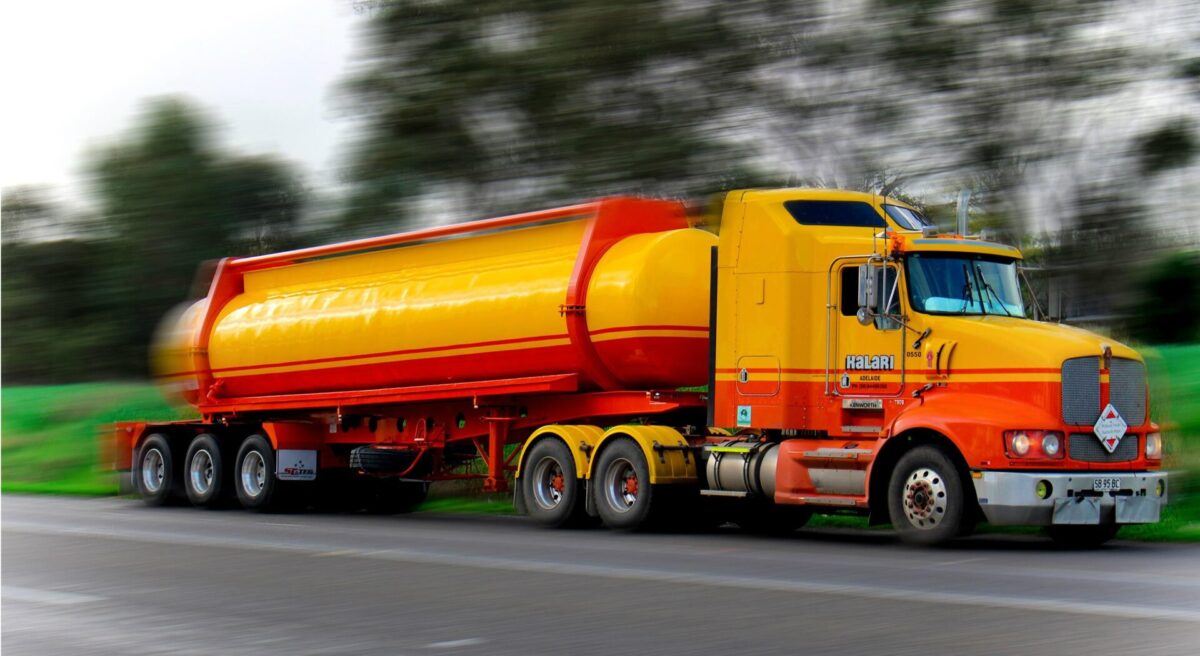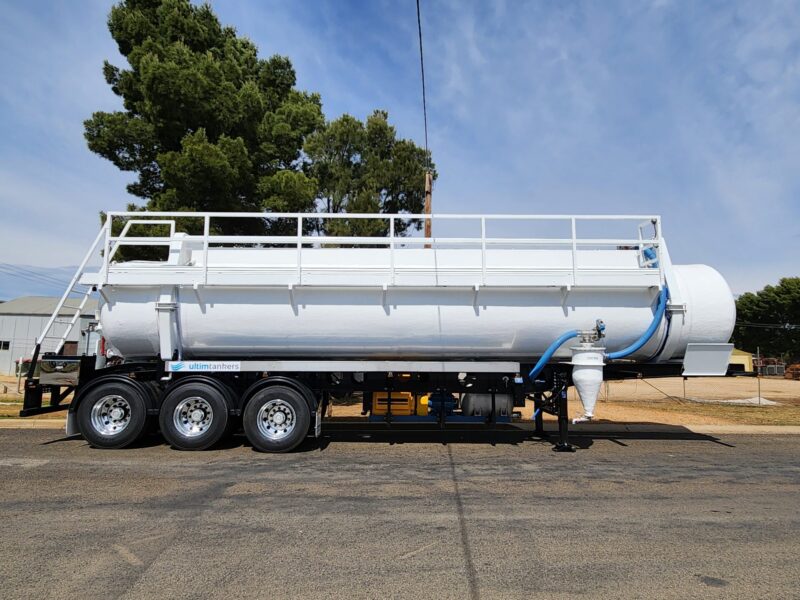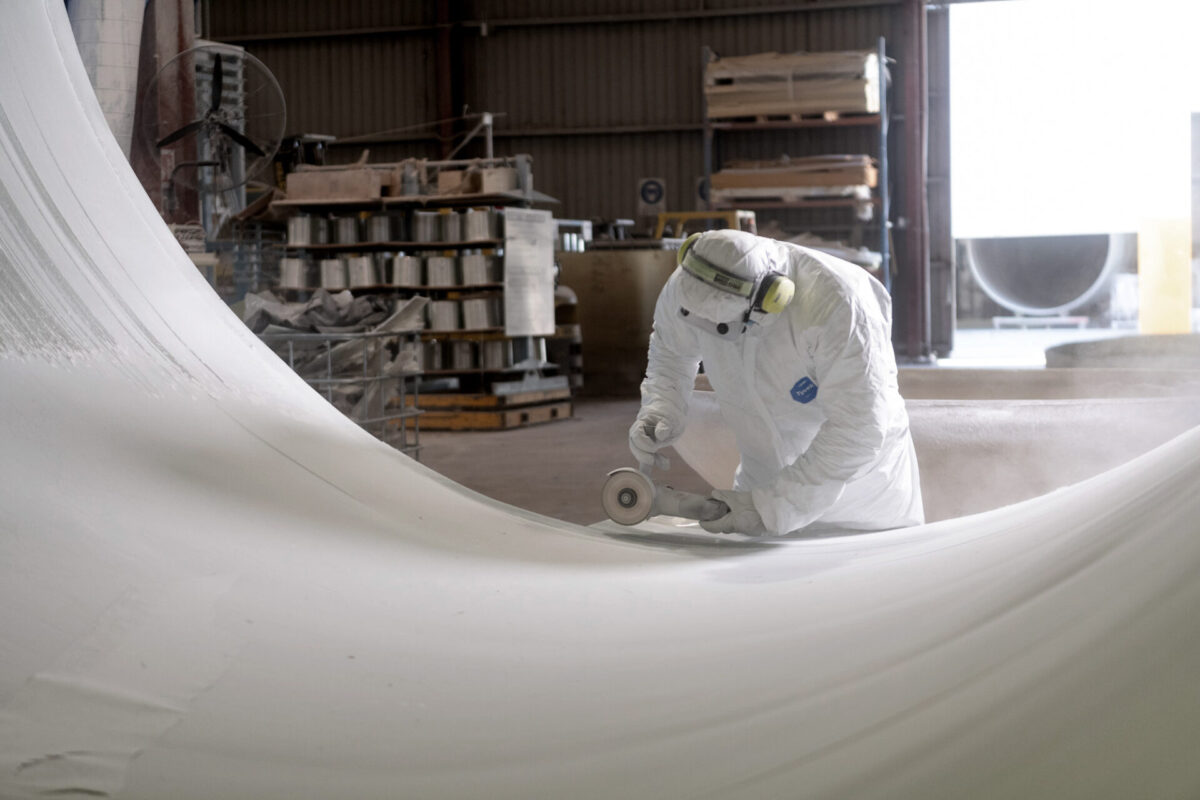Posted on 12/06/2025

For industries handling hazardous or corrosive liquids, safe and compliant transport of these chemicals is non-negotiable. Chemical tanker trucks play a critical role in moving these liquids efficiently and securely, but not all tankers are created equal.
At CSG Composites, we design and manufacture high-performance chemical tanks made from advanced fibreglass reinforced plastic (FRP), a material chosen for its durability, lightweight structure, and superior resistance to corrosion. In this guide, we break down what a chemical tanker truck is, how it operates, and what you need to consider when choosing one.
What Does a Chemical Tanker Truck Do?
A chemical tanker truck is purpose-built to carry bulk liquids. These trucks are fitted with cargo tanks constructed from materials that meet stringent safety and chemical compatibility standards.
Unlike general-purpose tanks, chemical transport tankers are designed for specific applications. At CSG Composites, our Ultim Tankers feature bonded polyethylene liners and multiple compartments, allowing for the transport of a variety of chemicals in a single trip while maintaining strict containment integrity.
Our FRP tankers are also engineered to handle vacuum and pressure operations, reducing the risk of leaks, cracks, or system failures even in extreme conditions.
What Can You Carry in Liquid Chemical Tankers?
Chemical tankers are suitable for carrying a wide range of hazardous liquids, including:
- Acids (e.g., nitric acid, hydrochloric acid)
- Caustic solutions
- Petroleum and fuel
- Industrial detergents
- Food-grade liquids
- Water-based chemicals
- Sludge and waste liquids
- Compressed gases
Because chemical compositions vary, selecting the right materials of construction is essential. FRP offers unmatched flexibility for handling corrosive and flammable substances, thanks to its non-reactive and corrosion-resistant surface.

How Much Liquid Can a Tanker Truck Hold?
The maximum capacity of a chemical tanker truck depends on its configuration and intended use. At CSG Composites, we offer a range of customisable capacities:
- Rigid-mounted tanks from 3KL to 15KL
- Tri-axle semi trailers from 18KL to 30KL
- Dog trailers and B-double combinations extending up to 25KL per unit
Each cargo tank is tailored for gravity loading and discharge, pressure-rated for hazardous applications, and engineered with precision to ensure long-term performance.
What Are the Different Types of Transportation Tanks?
At CSG Composites, we offer two specialised tank solutions engineered to meet the demands of industrial liquid transport across Australia: the Ultim Transport Tanker and the Stallion Cartage Tank.
1. Ultim Transport Tankers
Our flagship solution for bulk liquid and chemical transportation, the Ultim Tanker is built from corrosion-resistant fibreglass reinforced plastic (FRP) and tailored to handle a wide variety of hazardous and non-hazardous liquids. Designed for road, rail, and plant-based applications, these tankers can be mounted to rigid trucks, trailers, or B-double configurations. They’re ideal for customers who demand high chemical compatibility, low maintenance, and custom-engineered capacity.

2. Stallion Cartage and Dust Suppression Tanks
The Stallion Tank is purpose-built for cartage, dust suppression, and spray applications. With full internal baffle walls for stability and a modular design, it’s engineered to withstand rough terrain and constant use. This makes it a go-to choice for mining, construction, agriculture, and civil works projects. These tanks are tough, impact-resistant, and ready to handle non-corrosive liquids, water, or fertilisers, with multiple mounting and spray system configurations available.

Both systems are backed by CSG Composites’ many years of experience in FRP manufacturing, offering solutions that are lightweight, durable, and tailored to your application from the ground up.
What Industries Use Chemical Tanker Trucks?
CSG Composites’ chemical tanker trucks are relied upon across a wide range of industries where safety, compliance, and performance aren’t negotiable. From bulk chemical handling to water management and dust suppression, our transport solutions are engineered to support:
1. Chemical and Industrial Processing
Facilities that produce or handle hazardous chemicals, acids, and alkaline solutions rely on our Ultim Transport Tankers to ensure safe, compliant transit between plants, warehouses, and distribution points.
2. Mining and Resources
In remote and high-demand mining environments, both our Ultim and Stallion tanks are used to cart water, chemicals, and dust suppressants across rugged terrain. Their impact resistance and baffle systems are engineered for stability in the most demanding off-road conditions.
3. Agriculture and Fertiliser Distribution
Farmers and agribusinesses use our Stallion tanks for fertiliser, liquid nutrients, and irrigation water transport. The modular design and spraying compatibility make them ideal for field application and on-farm cartage.
4. Civil Construction and Infrastructure
Our Stallion tanks are widely used by construction and roadwork crews for dust control, spraying, and water delivery. These tanks withstand vibration and harsh handling while ensuring steady flow and reliable output.
5. Oil, Gas and Fuel Distribution
CSG Composites FRP tanks are suited for specialised fuel and hydrocarbon transport, offering strong chemical resistance and built-in safety features for companies working in energy logistics and remote refuelling.
Our tankers are built to serve industries where operational downtime is not an option. And because we custom-manufacture in Australia, we can design to your specific transport, mounting, and regulatory requirements.
How Much Does a Chemical Tanker Cost?
The cost of a chemical tanker truck varies based on:
- Tank capacity and configuration
- Required pressure ratings
- Number of compartments
- Type of liner and materials
- Add-ons like monitoring systems or custom fittings
At CSG Composites, we provide cost-effective, long-term solutions that reduce your operational costs by enabling greater payloads, less maintenance, and longer asset lifespans.

Why FRP Is the Smarter Choice for Transport Tankers
Fibreglass Reinforced Plastic (FRP) is ideal for chemical transportation because:
- It’s lightweight, allowing for higher liquid loads
- It’s non-corrosive, suitable for virtually all chemicals
- It’s structurally stable under pressure
- It lowers maintenance requirements and costs
- It’s adaptable to different industries and regulatory environments
FRP helps companies avoid costly downtime caused by corrosion, cracking, or tank failure — making it a superior long-term investment compared to traditional materials like aluminium or steel.
Built for Australian Conditions, Backed by Australian Standards
Our tanks are manufactured in-house at our facility in Parkes, NSW. Every unit meets or exceeds the Australian Dangerous Goods Code and quality standards.
With over 50 years of industry knowledge, CSG Composites supports you through:
- End-to-end design consultation
- Custom engineering for specific chemical handling
- On-site inspection and service
- A long history of safe and proven tankers still in operation today
Choosing the Right Tanker Matters
Whether you’re transporting bulk liquids across state lines or servicing a regional processing facility, the reliability, durability, and compliance of your chemical tanker truck is vital.
At CSG Composites, our Tankers represent the latest in composite technology engineered to handle Australia’s toughest environments and most corrosive materials.
Need advice on selecting a liquid chemical tanker for your operation? Contact our experienced team today to begin the process.
Written by the CSG Composites Team
Industry Success
Client Testimonials
Scott Morris,
Radium
“It’s their knowledge of composites and FRP, the materials, the resins. It’s the experience they bring to the table with knowing the right compounds to put together is what makes the difference”
Jim Kelly,
Arris
“CSG Composites were very good to us as they were able to meet the short lead time and have the tanks ready to go”
